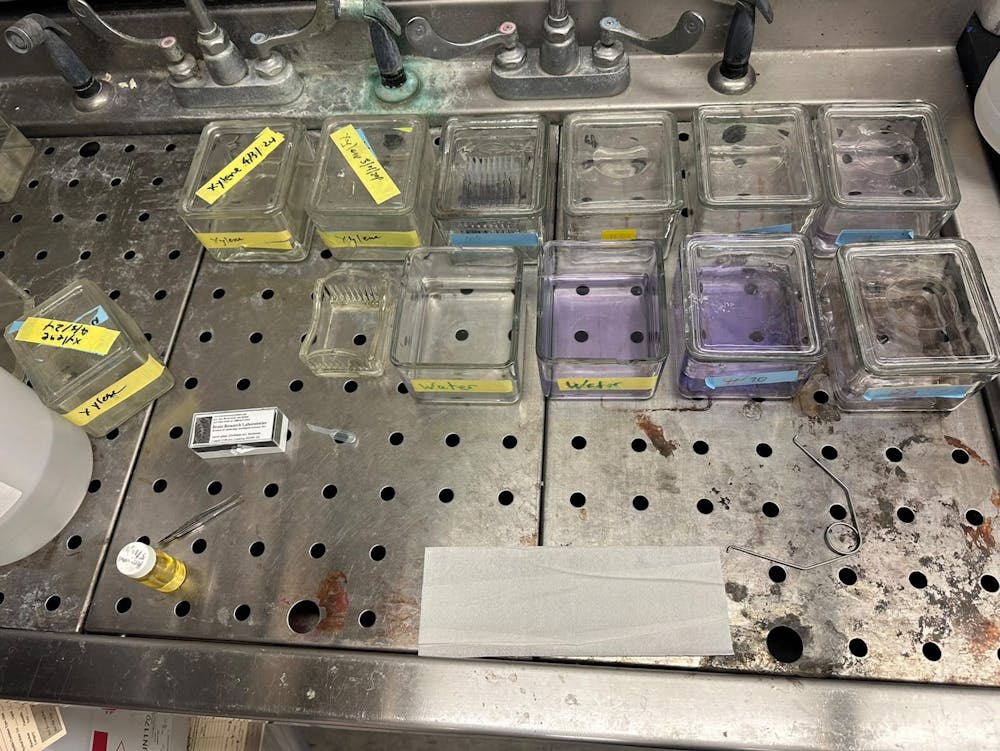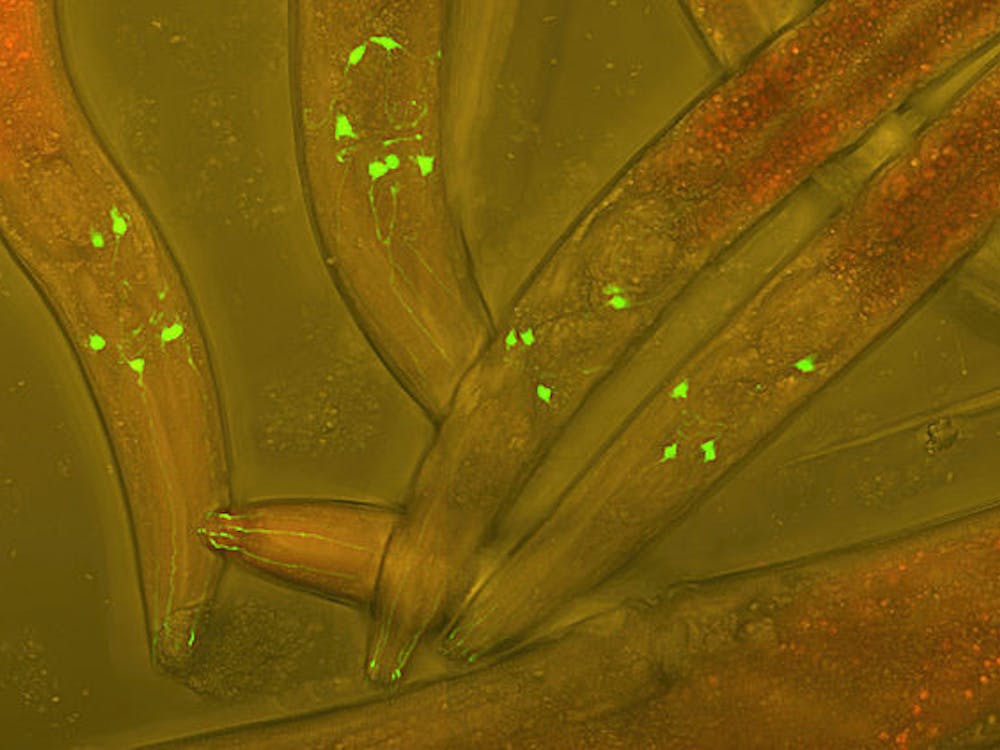Becky Zheng, a sophomore majoring in Neuroscience and Chemistry and minoring in Writing Seminars, started doing research in high school and now continues at the School of Medicine. She is currently working in a lab under Dr. Lee J. Martin, who studies the onset of neurodegenerative diseases like Alzheimer’s and amyotrophic lateral sclerosis. In an interview with The News-Letter, Zheng unraveled her research journey and shared how her time at the lab has seeped into her daily life.
After developing an interest for neuroscience in high school, she wanted to learn more about the subject, but her high school did not offer any classes in neuroscience. She then applied and was accepted into Pioneer Academics, an online research program that helps high school students overcome potential geographic and socioeconomic obstacles to research by connecting them with a professor to build their foundations in research.
“I asked myself, ‘How can I develop more knowledge and pursue my interests and passions in high school without really needing to travel far or spend a lot of money because that can be very expensive. Then, I was introduced to Pioneer Academics through QuestBridge, and I thought it looked like a very good program for me because it was all remote and [I was] able to meet people and mentors all over the world,” Zheng said.
At Pioneer Academics, Zheng started to gain an understanding of the research process and became familiar with reading articles and journals — the first steps towards writing a research paper.
“[The experience] really showed me how much time and effort it takes to actually conduct research,“ she added. “It gave me an appreciation of all the work professors and researchers have to do to produce material.”
Zheng’s specialization was in neuroscience and addiction; she worked on isolating specific structures and compounds in the different pathways that could contribute to addiction, such as the dopamine and reward pathways. Zheng also examined the different ways pain medications work, such as how to produce a pain-relieving effect without activating reward pathways.
Zheng stated that research was one of the main reasons why she decided to pursue an undergraduate degree at Hopkins.
“I think Hopkins has a hands-on approach to research that is very important to me as a student,“ she said. “I want to go into research, I want to be able to work with principal investigators (PI) and get my hands dirty, so to speak.”
She started working in a lab during her second semester and used the winter break between fall and spring semesters to reach out to different PIs.
“I asked my friend to help me build a resume, to format a cold email and how to showcase my interest while keeping the email short,“ she explained. “I emailed a couple of PIs, and, for the lab that I am currently working at, I [found out about it] through one of my friends who thought I might be interested. So I emailed, and [the PI] responded very quickly. He was very warm and very welcoming.”
Zheng noted the size of her lab, which has around six undergraduates, one medical student and one postdoctoral student. Because of the small size, she appreciates that she can develop a close mentor-mentee relationship with her PI, Martin. Her project in his lab relates to Parkinson’s disease, a neurodegenerative disease that typically appears in individuals age 60 and over. She specifically examines the accumulations of prions, structurally-abnormal proteins that cause misfolding of other proteins and eventually results in cell death, and investigates if Parkinson’s is a result of the accumulations of such proteins starting from the neonatal phase.
Currently, Zheng explores this hypothesis through immunohistochemistry staining, taking the brain slices of piglets that have brain injuries modeling Parkinson’s and treating them with different antibodies to quantitatively count the affected neurons of the disease. Due to the time commitments of these procedures, she structures her classes around her research times.
“My experiments require back-to-back days, meaning that I need to be in the lab at least two consecutive times a week. My current schedule has Mondays and Tuesdays as my lab days,“ she described. “On Mondays, I would start around 1 p.m. Sometimes, I’m able to leave as early as 4 p.m. but, most times, I don’t leave the lab until 7:30 p.m. This is due to the nature of the protocols; you have to pipette the slides, you have to prep the slides... There are a lot of steps involved.”
Zheng regards contributing to the database of the scientific community and putting in an effort to make other people’s lives better a driving factor for her excitement towards research.
“The goal is to find a cure or to prevent Parkinson’s. So if we can find concrete data that supports my PI’s hypothesis that neurodegenerative diseases start at the beginning of life, that can help us pinpoint the exact moment Parkinson’s starts and maybe develop a way to prevent its symptoms from showing up completely,“ she said. “This would help people who have Parkinson’s disease and their family, since it’s genetic, and they might be less worried about passing it onto their children.”
Future steps for Zheng include branching out and gaining experience in other labs as well as beginning her own independent research. Zheng also is interested in participating in a Bachelor's-Master's program, focusing entirely on research to build more of a foundation before pursuing an MD-PhD dual-degree program.
Lastly, Zheng offers advice to undergraduates looking into diving into the world of research.
“I know a lot of people are afraid to reach out to professors and PIs. My suggestion is to just do it,“ she encouraged. “Keep your options open and, when you encounter roadblocks like if they don’t respond, just move on. There are many labs on campus that you can reach out to.”





